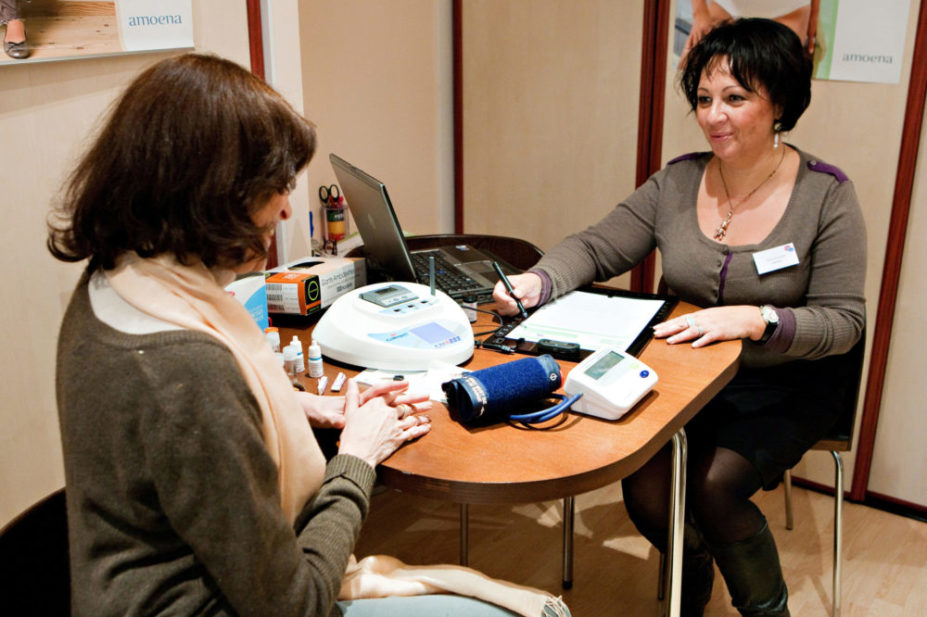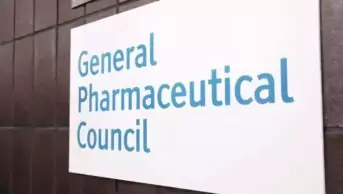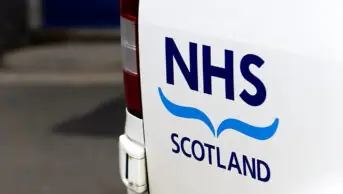
BSIP SA / Alamy Stock Photo
General practice should pause recruitment of pharmacy staff in Scotland, owing to an “unsustainable” workforce drain from community pharmacy, representatives for the sector have said.
In a statement published on 31 August 2021, Community Pharmacy Scotland (CPS) said that over the past “three to four years almost 600 WTE [whole time equivalent] pharmacists and 300 WTE pharmacist technicians” have been recruited by general practice “to support the pharmacotherapy element of the GP contract”.
The CPS said the “uncoordinated recruitment is now one of the major and enduring contributing factors to our unprecedented workforce pressures” and called for “a temporary stop to the recruitment of pharmacy workforce to GP primary care support roles”.
The statement has been met with disagreement from some other pharmacy representatives, saying a pause in recruitment would put “restrictions on individuals’ career choices”.
The pharmacotherapy service was first announced in 2017 as part of a government plan for all GP practices to provide a level one pharmacotherapy service — including pharmacy-run medicines reconciliation and acute and repeat prescribing services — by April 2021.
But in a memorandum of understanding, covering 2021–2023, the Scottish government said that regulations will be amended to extend the deadline for providing a pharmacotherapy service to April 2022.
The CPS said the shift in workforce to support this service “has occurred with no planning to account for the needs of hospital or community pharmacy services, with the vast majority of individuals coming from the latter”.
“There are simply not enough pharmacist and pharmacy technician hours in the country to satisfy the combined demands of all three sectors,” the statement said.
“Yet the recently published Memorandum of Understanding in July 2021 alongside the NHS Recovery plan indicates there is no sign of slowing the progress in the pharmacotherapy element of the GMS [general medical services] contract for at least the next two years.”
The statement added that the recruitment issues “will ultimately be detrimental to the joint ScotGov/CPS ambitions for the community pharmacy network” as outlined in the ‘NHS Recovery Plan’.
“Calls for appropriate workforce planning should be happening as a minimum at this time, with priority placed on roles that are critical to patient wellbeing and timely access to services,” the statement added.
The CPS’s statement follows reports of pharmacies temporarily closing at short notice in some health boards, partly because of a “lack of available pharmacists”.
In addition, a report by the Scottish Intensive Care Society Audit Group found that critical care patients in four high-dependency units were not being reviewed daily by a pharmacist in line with targets because of a lack of trained staff.
According to a joint letter from the RPS and the British Medical Association Scottish GPs Committee, “as of November 2020, all but seven GP practices in Scotland were receiving some level of pharmacy support, with a total of 876 whole time equivalent pharmacy staff involved (63% pharmacists, 35% pharmacy technicians and 2% pharmacy support workers)”.
Andrew Carruthers, chair of the Royal Pharmaceutical Society’s Scottish Pharmacy Board, said: “We disagree with stopping the recruitment of pharmacy professionals in GP practices because we do not want to see restrictions on individuals’ career choices.
“Many pharmacists have benefited and continue to benefit from working in multiple settings, and they should be supported to make choices that support their professional development aspirations.
“However, we do think it is essential that there is meaningful and robust pharmacy workforce planning in place which takes into account all sectors, skill mix requirements, and workforce changes resulting from new services and digital improvements.”
A spokesperson for the Scottish government said: “The community pharmacy network is a vital part of the primary care team and the Scottish government will continue to work with CPS and other partners to ensure not only the stability of the network but also that the balance is maintained across the whole pharmacy workforce in the hospital, community and GP practice sectors.”
They added that the Scottish government integrated workforce plan commits to increasing the number of pharmacy preregistration training places by 120 over the next four years and is currently increasing training places available for pharmacy technician training.
The chief pharmaceutical officer for Scotland has commissioned work on the transformation of hospital pharmacy services, including addressing pharmacist and wider pharmacy workforce challenges, the government added.
READ MORE: Pharmacotherapy service may have to be altered owing to workforce shortages


